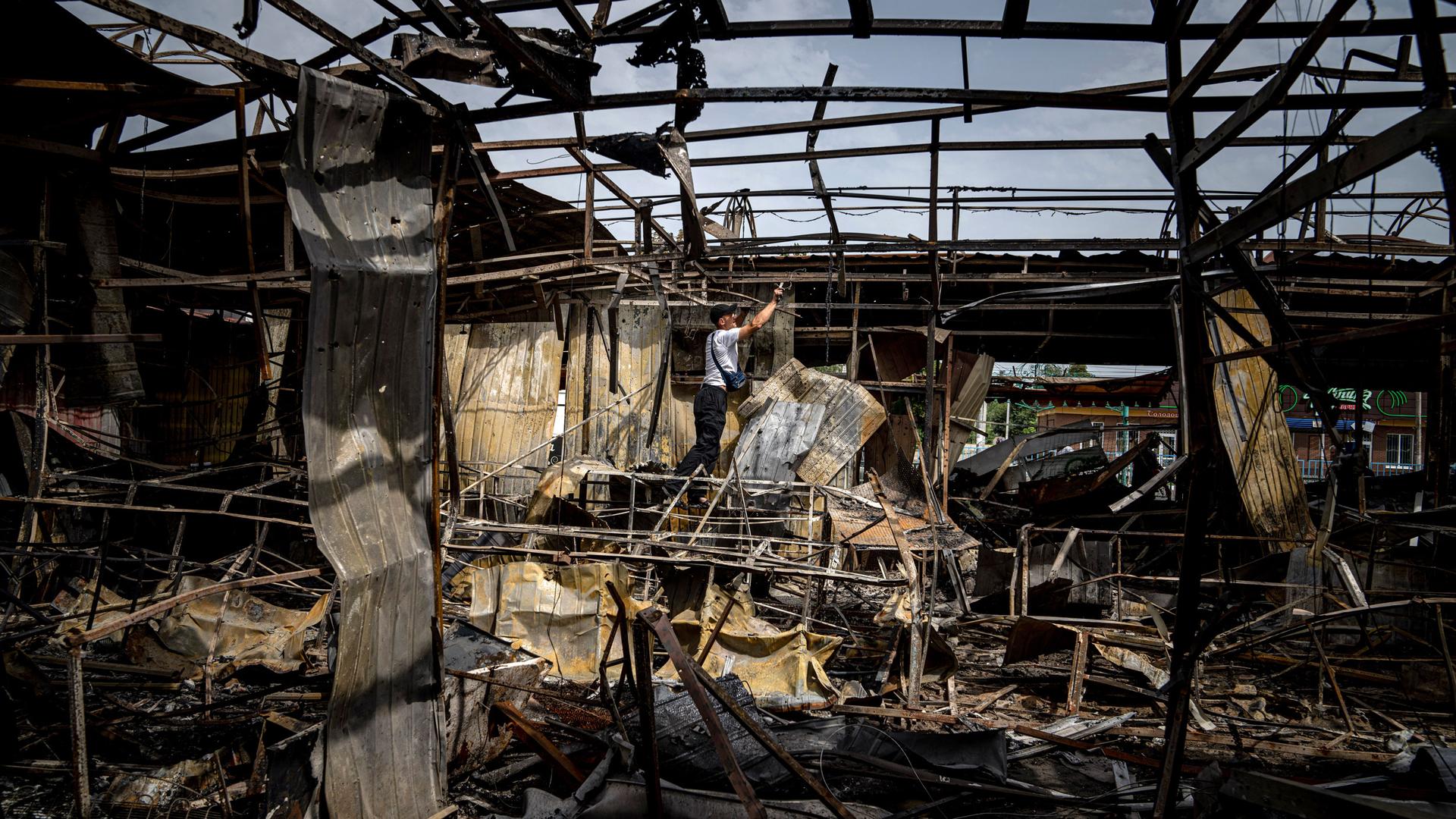Six months into Russia’s invasion of Ukraine, the war has affected everyone in Ukrainian society, with thousands of casualties and millions of people displaced.
Air raid sirens, for many, are now a part of daily life.
Many Ukrainians have devoted themselves to national service during this time. And serving on Ukraine’s front lines against Russian aggression for six months straight has taken a major toll on mental health.
Viktor Pylypenko, a medic serving north of Russian-occupied Mariupol, said that staying mentally strong after six straight months of combat is difficult.

When Pylypenko sees others struggling, he said he tries to find ways to calm them down and ease them out of their shock.
“I saw some of the guys after receiving shell shock in a complete mental breakdown when they were trying to run away, so we were trying to catch them because they were running away in the direction of the enemy,” he said.
But Pylypenko says he’s not immune himself. When he gets anxious, he said, he has turned to Tibetan chanting to calm him down.
Humor — especially dark humor — also helps. Pylypenko said that on one occasion, he was treating someone who was severely injured and the patient started taking selfies to lift the mood.
But moments like this, Pylypenko said, are the exception.

Yekaterina Pryimak, a former medic with the Ukrainian military, has also started to feel the impact of six straight months on the front lines.
When war broke out on Feb. 24, Pryimak immediately sprung into action and opened an aid center in Kyiv. Many veterans, former medics, and volunteers joined her.
For the first month, she barely ate or slept, she said. She threw herself into fundraising, delivering food and medicine, buying military gear and evacuating people.
Her team also trained medics who were then sent to the front lines.
Putting her entire life on hold has been difficult, she said. She has many friends who are currently serving in Ukraine’s armed forces and some of them have died in combat.
She’s now seeing a therapist once a week, she said. Her organization, Ukrainian Women Veteran Movement (UWVM), also provides mental health support for anyone who needs it.
Pylypenko said he’s also been thinking about the importance of mental health — especially on the front lines.
“The front-line villages are destroyed, every time we are moving we see how fields are burning, burning after shelling of Russian artillery. Like the whole place is under fire,” he said.
Pylypenko recently sent a video that he recorded from the back of a military truck that shows a small front-line village that’s completely decimated, with debris everywhere.
Some residents refuse to leave, however, despite the danger.
Earlier this week, Valery Zaluzhny, commander-in-chief of Ukraine’s Armed Forces, said that about 9,000 Ukrainian troops have died since Russia’s invasion.
Both Pryimak and Pylypenko told The World that they’re confident that Ukraine will win the war.
But that victory, they both said, will come at a heavy cost.
Related: Tensions along Ukraine’s border remain high. Military veterans there say they’re ready for anything.
